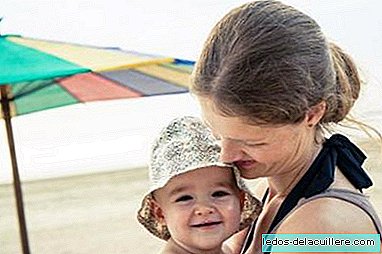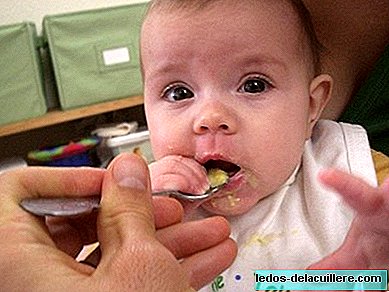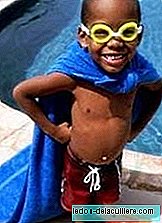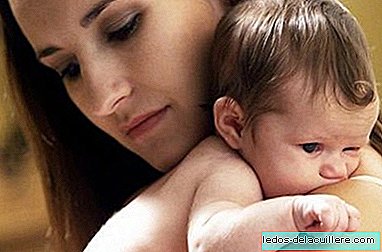
Gastroenteritis can be caused by viruses, bacteria or parasites and usually one of the most characteristic symptoms of those who suffer from it is diarrhea. The disease consists of an inflammation of the stomach and intestines, and as you know, many people call it 'stomach flu'.
We must be clear that most viruses and bacteria are transmitted between people due to the absence of the habit of washing your hands, although a proportion of cases are spread by air. So in principle, proper hygiene after being in contact with sick people, before and after eating, and after using the bathroom, are the main preventive measures. It is also recommended to be careful when handling food: washing and washing our hands.
Among the prevention measures is also the oral immunization against rotavirus (administered in the first dose between six and 12 weeks of age, as we can read in the vaccination schedule of the AEP Immunization Committee).
Gastroenteritis is mostly caused by viruses: norovirus (common among school-age children), rotavirus (which can infect children and adults in contact with children), astrovirus and enteric adenovirusTheir symptoms usually appear between four and 48 hours after infection, and in the case of acute gastroenteritis such as the one that most of the children in our environment have been suffering for two weeks, they remit within a few days. In fact it should be self-limited in seven days, although many affected get good before.
Recognize gastroenteritis
The main symptoms are nausea and vomiting, tummy ache or diarrhea (may appear combined, but not necessarily at the same time). On the other hand, children often have fever or muscle aches, as well as chills and sweats. Hunger may disappear for a few hours, and consequently there will be a loss of weight, but the most important thing is to ensure that they do not become dehydrated.
Sometimes you must visit the doctor
If you observe signs of dehydration (eyes that seem sunken, mouth clearly dry, there are no tears when crying, plumber sunk in babies); or the liquids are not retained by persisting vomiting. Also if blood is observed in the stool, or when the diarrhea lasts several days.
A confused child, with vertigo or feeling faint should also be monitored by a professional
There are special cases in which we will not hesitate for a moment to take the child to the doctor. As examples some previous health states: diabetes, kidney disease or a previous state of malnutrition.
How to act?
If you are not going to visit the pediatrician or the emergency department because you think it is not necessary, you can not provide them with any type of antibiotic, even antidiarrheal drugs, the medications are prescribed by the doctor.
Above all we must ensure that recover lost fluids with diarrhea or vomiting, it doesn't matter so much that they want to eat (they will eat solid again in a short time) and that they are well hydrated. Young children should never use drinks for athletes, in fact it is better that with children of any age they buy solutions of those they sell in the pharmacy, and are prepared to replenish electrolytes and liquid.
Drinks that contain sugar they make diarrhea worse and do not contribute minerals (juices, soft drinks, etc.), so they are not recommended. It is very likely that children only want to drink liquids very little by little, since their condition does not allow them to do otherwise, and if they are forced to finish the preparation in one go they could vomit it.
When they feel like eating again ... we must offer them food to stop fasting, and today many pediatricians already they do not recommend the soft diet, nor suppress milk, but offer what the child has a habit of eating, excluding very sugary or fatty foods.
Finally, a child affected by gastroenteritis should not go back to school before feeling well, that includes that the fever has disappeared, and that they no longer have vomiting or diarrhea.












